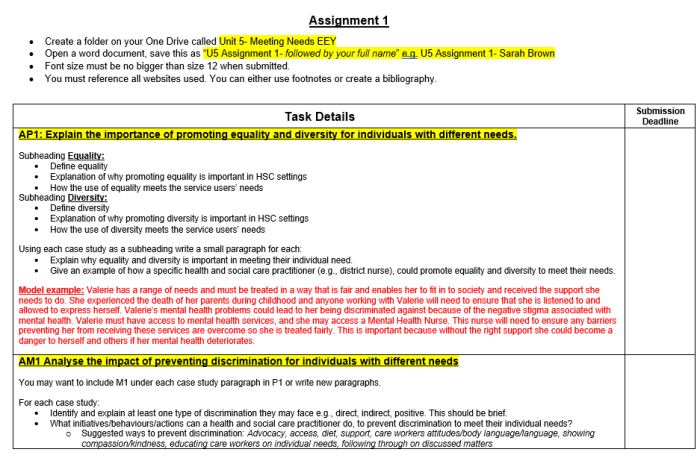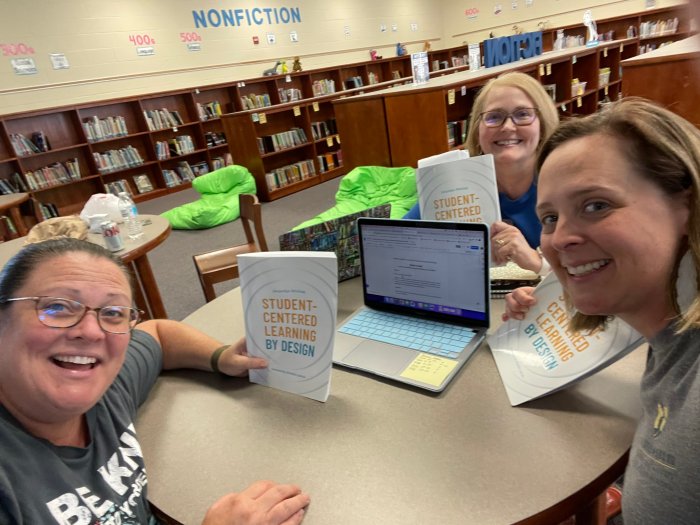Embark on an educational odyssey with the NBCT Component 1 Study Guide, your indispensable companion for achieving teaching mastery. Delve into the intricacies of pedagogical knowledge, content expertise, professional responsibilities, and practice-based research, empowering yourself to cultivate a transformative learning environment.
As you navigate this comprehensive guide, you’ll discover the pedagogical principles that ignite student engagement, the content knowledge that fuels their intellectual growth, and the professional ethics that guide your practice. Engage in practice-based research to continuously refine your teaching strategies, ensuring that your students reach their full potential.
Overview of NBCT Component 1 Study Guide
The NBCT Component 1 Study Guide is a comprehensive resource designed to support candidates preparing for the first component of the National Board for Professional Teaching Standards (NBPTS) certification process. It provides a detailed overview of the assessment’s content, format, and scoring criteria, enabling candidates to develop a targeted study plan and increase their chances of success.
The guide is structured into several sections, each addressing a specific aspect of the Component 1 assessment. These sections include:
Content Areas
- Domain 1: Content Knowledge
- Domain 2: Instructional Practice
- Domain 3: Learning Environment
- Domain 4: Professional Responsibilities
Each section provides a thorough explanation of the key concepts, skills, and knowledge required to demonstrate proficiency in that domain. Candidates will find sample tasks, scoring rubrics, and practice questions that mirror the actual assessment, helping them to identify areas of strength and weakness and focus their studies accordingly.
Pedagogical Knowledge
Pedagogical knowledge is the foundation of effective teaching. It encompasses the understanding of how students learn, the different teaching methods and strategies, and the role of assessment and data analysis in pedagogical decision-making.
Teaching Methods and Strategies
The NBCT Component 1 Study Guide emphasizes the importance of using a variety of teaching methods and strategies to meet the diverse needs of students. These include:
- Direct instruction
- Inquiry-based learning
- Cooperative learning
- Differentiated instruction
- Technology-enhanced learning
Assessment and Data Analysis
Assessment and data analysis are essential components of pedagogical decision-making. The study guide provides guidance on how to use assessment data to:
- Monitor student progress
- Identify areas of strength and weakness
- Make informed decisions about instruction
- Evaluate the effectiveness of teaching methods and strategies
Content Knowledge
Content knowledge, as addressed in the study guide, encompasses the subject-specific knowledge and understanding that teachers must possess to effectively teach their students. It extends beyond a basic understanding of the subject matter and delves into the intricacies and nuances of the discipline.
The depth and breadth of content knowledge required for effective teaching vary depending on the subject area and grade level. However, in general, teachers must have a comprehensive grasp of the core concepts, theories, and principles of their subject matter.
They must also be familiar with the current research and best practices in their field and be able to apply this knowledge in their teaching.
Staying Up-to-Date with Content Knowledge Advancements
In today’s rapidly evolving world, it is essential for teachers to stay up-to-date with content knowledge advancements. New discoveries and innovations are constantly being made, and teachers need to be aware of these changes in order to provide their students with the most accurate and up-to-date information.
There are several ways that teachers can stay current with their content knowledge. They can read professional journals, attend conferences and workshops, and take online courses. They can also collaborate with other teachers and experts in their field.
Professional Responsibilities
Educators have a significant responsibility to uphold ethical and legal standards in their profession. This includes adhering to codes of conduct, maintaining confidentiality, and reporting any suspected abuse or neglect. They must also be aware of the legal implications of their actions, such as the potential consequences of discrimination or harassment.Collaboration
and professional development are crucial for educators to maintain high teaching standards. By working together, teachers can share ideas, learn from each other’s experiences, and stay up-to-date on best practices. Professional development opportunities, such as workshops, conferences, and online courses, allow educators to enhance their knowledge and skills.As
professional educators, we are expected to engage in ongoing reflection and improvement. This involves regularly assessing our teaching practices, identifying areas for growth, and seeking out opportunities to enhance our skills. By continuously reflecting on our work and seeking feedback from others, we can strive to become more effective educators.
Ethical Responsibilities
- Upholding codes of conduct
- Maintaining confidentiality
- Reporting suspected abuse or neglect
- Adhering to legal standards
Collaboration and Professional Development
Collaboration among educators is essential for:
- Sharing ideas and experiences
- Learning from each other’s best practices
- Staying up-to-date on educational trends
Professional development opportunities include:
- Workshops
- Conferences
- Online courses
Ongoing Reflection and Improvement
As educators, we should:
- Regularly assess our teaching practices
- Identify areas for growth
- Seek out opportunities to enhance our skills
- Continuously reflect on our work
- Seek feedback from others
Practice-Based Research

Practice-based research is a systematic inquiry that teachers conduct to improve their teaching practices and student learning outcomes. It involves investigating educational issues and problems within the context of one’s own classroom or school, using data and evidence to inform pedagogical decisions.
The NBCT Component 1 study guide provides comprehensive materials to prepare for the exam. For those seeking additional support, phi nu pi kappa alpha psi offers valuable resources. By integrating these resources into your study plan, you can enhance your understanding of the NBCT Component 1 content and increase your chances of success on the exam.
Conducting practice-based research offers several benefits, including:
- Improved understanding of teaching and learning processes
- Enhanced ability to identify and address student learning needs
- Development of effective teaching strategies and interventions
- Contribution to the broader body of educational knowledge
Designing and Conducting Research Projects
To design and conduct effective practice-based research projects, teachers should:
- Identify a clear research question or problem
- Review relevant literature to inform the research design
- Select appropriate data collection methods (e.g., surveys, observations, interviews)
- Collect and analyze data using rigorous methods
- Interpret findings and draw evidence-based conclusions
Using Data and Evidence
Data and evidence play a crucial role in practice-based research. Teachers can use data to:
- Track student progress and identify areas for improvement
- Evaluate the effectiveness of teaching strategies
- Make informed decisions about curriculum and instruction
- Communicate research findings to stakeholders (e.g., students, parents, administrators)
Sample Study Guide Content

To enhance your preparation for the NBCT Component 1 exam, we have designed a sample study guide that covers essential concepts from pedagogical knowledge, content knowledge, and professional responsibilities.
The questions in this study guide have been carefully selected to align with the NBCT standards and encompass a range of question types, including multiple choice, short answer, and essay. By engaging with these questions, you can effectively assess your understanding of the key domains and identify areas that require further attention.
Pedagogical Knowledge, Nbct component 1 study guide
Questions in this section will evaluate your understanding of effective teaching strategies, student assessment techniques, and classroom management principles.
- Multiple Choice:Which of the following strategies is most effective for promoting student engagement in a diverse classroom?
- Short Answer:Describe the role of formative assessment in monitoring student progress and informing instructional decisions.
- Essay:Discuss the principles of differentiated instruction and explain how you would implement them in your classroom.
Content Knowledge
Questions in this section will assess your deep understanding of the subject matter you teach and your ability to convey it effectively to students.
- Multiple Choice:Which of the following historical events had the greatest impact on the development of the United States Constitution?
- Short Answer:Explain the concept of photosynthesis and its significance in the ecosystem.
- Essay:Analyze the literary devices used in a specific poem or novel and discuss their impact on the reader’s interpretation.
Professional Responsibilities
Questions in this section will explore your understanding of ethical principles, collaboration, and professional development.
- Multiple Choice:Which of the following actions constitutes a violation of teacher ethics?
- Short Answer:Describe the importance of collaboration among teachers in improving student learning.
- Essay:Discuss the role of professional development in enhancing your teaching practice and student outcomes.
Query Resolution
What is the purpose of the NBCT Component 1 Study Guide?
The NBCT Component 1 Study Guide provides a comprehensive overview of the knowledge and skills required to excel in the first component of the National Board for Professional Teaching Standards (NBPTS) certification process.
What topics are covered in the guide?
The guide covers pedagogical knowledge, content knowledge, professional responsibilities, and practice-based research, aligning with the NBPTS standards for effective teaching.
How can I use the guide to improve my teaching?
By studying the guide’s content, engaging in self-reflection, and applying the principles to your teaching practice, you can enhance your pedagogical skills, deepen your content knowledge, and foster a positive and engaging learning environment for your students.

